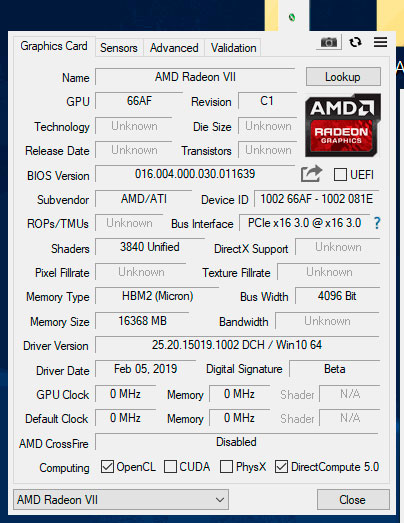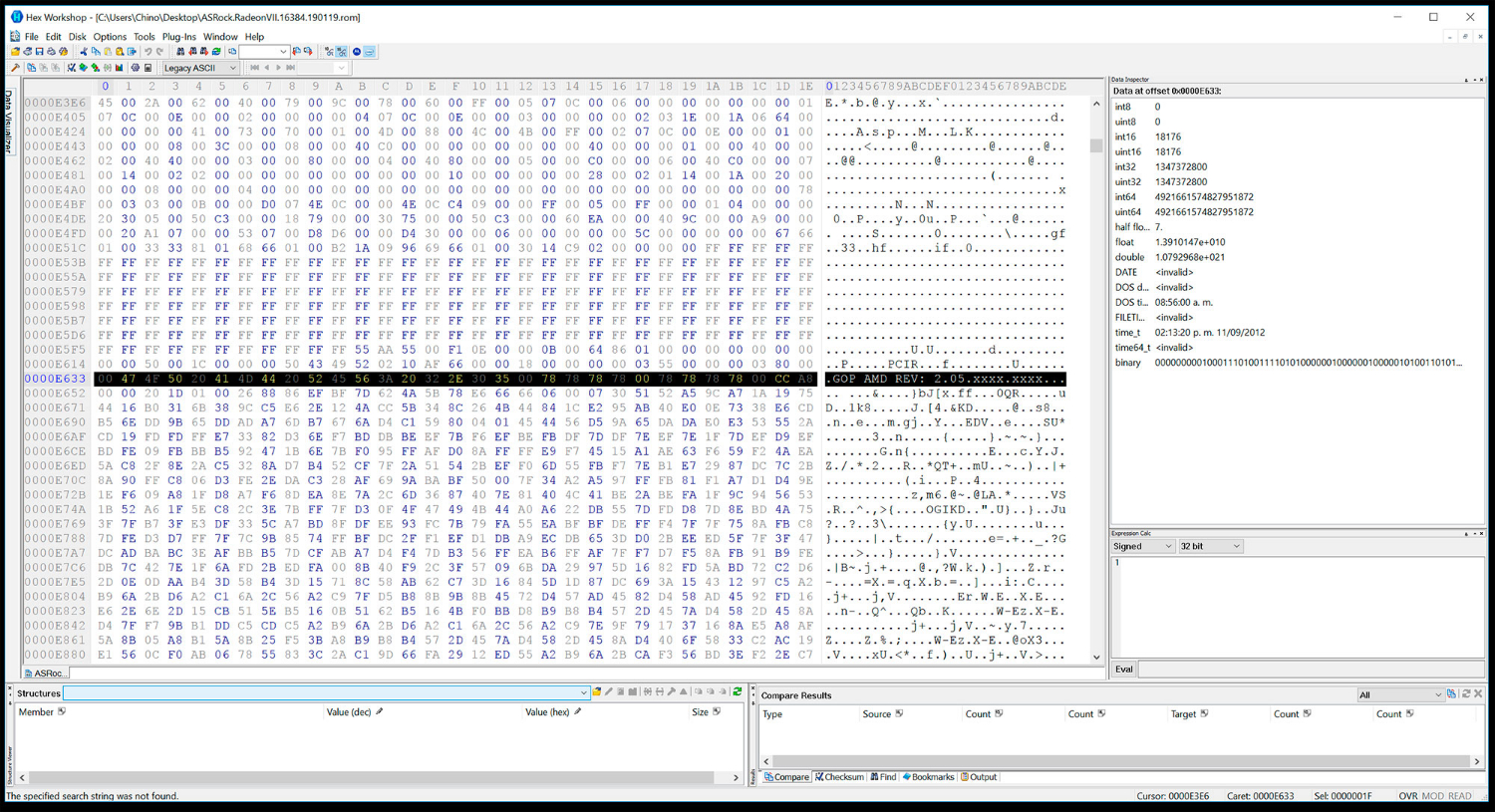AMD Radeon VII Lacks UEFI Support, AMD Responds (Updated)
Update 02/12: AMD has released an official statement regarding the issue. It reads:
“AMD has released a BIOS for the Radeon VII with UEFI GOP included for our AIB partners. We will also make a one click installable BIOS available to end users via AMD.com. We do not expect gaming performance differences between the non UEFI BIOS and the UEFI GOP included BIOS, although the non UEFI BIOS may experience slower boot times from cold boot.”
Original Article:
The community over at TechPowerUp has uncovered a startling detail about AMD's recently launched Radeon VII. Apparently, the 7nm gaming graphics card lacks UEFI support.
The majority, if not all, modern Intel and AMD motherboards have adopted the modern UEFI (Unified Extensible Firmware Interface) firmware. Nevertheless, they are still equipped with a Compatibility Support Module (CSM), whose job is to emulate a conventional BIOS (Basic Input/Output System) environment for certain legacy operating systems and non-UEFI hardware. CSM is normally enabled by default on many motherboards to allow users to plug non-UEFI hardware into their systems without having to tweak any setting inside the UEFI.
According to TechPowerUp's research, the Radeon VII's reference BIOS doesn't come with UEFI support or a GOP (Graphics Output Protocol) driver for the matter. The GOP driver is important as it's the component that's responsible for display duties during the pre-boot process. For the Radeon VII to work properly, the user must have CSM enabled, which means losing Microsoft's Secure Boot feature and potentially increasing boot times during cold boot. From a performance perspective, the Radeon VII should perform the same whether it's using a non-UEFI BIOS or UEFI GOP BIOS.
It's highly possible that some of AMD's early production Radeon VII units slipped by the chipmaker's quality assurance department and made their way to AMD's add-in-board (AIB) partners with a non-UEFI BIOS. We suspect that AMD has probably provided its partners with an updated UEFI GOP BIOS. ASRock, for example, has already uploaded the new Radeon VII BIOS on its website. It was possible to find traces of UEFI support and the GOP driver in the ASRock BIOS after opening it in a hex editor.
Get Tom's Hardware's best news and in-depth reviews, straight to your inbox.
Although the BIOS is specifically labeled for ASRock Phantom Gaming X Radeon VII, it should work on any and every Radeon VII considering that there are no custom models at thie time, and every brand is practically selling the same reference model in a different box. ASRock's solution is pretty simple and straightforward as the user only has to download the ZIP archive and run the one-click executable with administrator privileges. Once the process has finished, a simple restart is required, and you're good to go.
Looking at the issue from another angle, updating a graphics card's BIOS isn't a failsafe process, and owners might not want to run the risk of bricking a brand-new $699 graphics card.

Zhiye Liu is a news editor, memory reviewer, and SSD tester at Tom’s Hardware. Although he loves everything that’s hardware, he has a soft spot for CPUs, GPUs, and RAM.

